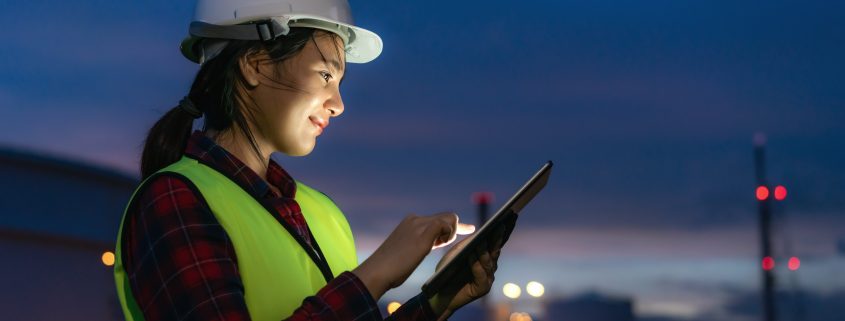Advancing the Construction Industry: The Impact of AI on Supply Chain Optimization
By Team Acumentica
Advancing the Construction Industry: The Impact of AI on Supply Chain Optimization
Abstract
This paper explores the application of Artificial Intelligence (AI) in optimizing supply chain management within the construction industry. AI technologies have the potential to revolutionize the sector by improving accuracy in forecasting, enhancing inventory management, streamlining scheduling and logistics, boosting safety protocols, and facilitating predictive maintenance. We examine each of these applications in detail, demonstrating how AI contributes to more efficient, cost-effective, and safer construction projects.
Introduction
The construction industry faces unique challenges, including project delays, budget overruns, safety issues, and inefficiencies in supply chain management. Artificial Intelligence offers promising solutions to these challenges by enabling more precise planning, real-time decision-making, and proactive problem-solving. This paper discusses the integration of AI across various aspects of construction supply chain management and the resulting improvements in project execution and safety.
AI Applications in Construction Supply Chain Management
Forecasting and Demand Planning
AI-Driven Forecasting Techniques
AI models utilize historical data and predictive analytics to forecast demand for materials and labor more accurately, reducing the risk of project delays and excess inventory costs.
Impact on Project Planning
Accurate forecasting ensures that resources are available when needed, thereby minimizing downtime and expediting project completion.
Inventory Optimization
AI in Inventory Management
Machine learning algorithms analyze usage patterns and predict future needs, optimizing inventory levels and reducing waste.
Case Studies: Inventory Cost Reduction
Examples from real-world projects show how AI-driven inventory management can cut costs by up to 20%, especially in large-scale construction projects.
Scheduling and Logistics Optimization
Automated Scheduling Systems
AI tools automate the scheduling of deliveries and labor, adapting to project changes in real-time and ensuring optimal resource allocation.
Efficiency Gains
AI-enhanced scheduling minimizes delays, optimizes the use of equipment and labor, and enhances the overall efficiency of construction projects.
Safety Enhancement
AI in Safety Monitoring
Computer vision and AI algorithms monitor construction sites to detect unsafe behaviors and potential hazards, significantly reducing the risk of accidents.
Predictive Safety Insights
Predictive models analyze historical accident data to identify risk patterns and predict potential incidents before they occur.
Predictive Maintenance
Equipment Maintenance Predictions
AI systems analyze data from equipment sensors to predict failures and schedule maintenance, preventing costly downtime and extending equipment lifespan.
ROI from Maintenance Optimization
Effective predictive maintenance can reduce equipment-related delays and maintenance costs by over 30%, as evidenced by recent implementations.
Challenges and Considerations
Integration Challenges
Integrating AI into existing construction management systems can be complex, requiring significant technical expertise and organizational change management.
Data Quality and Accessibility
Effective AI applications require high-quality, accessible data, which can be challenging to obtain in the traditionally fragmented construction industry.
Ethical and Legal Considerations
The automation of jobs and use of surveillance technologies for safety monitoring raise ethical and legal questions that must be addressed to ensure responsible AI adoption.
Conclusion
AI has the potential to transform supply chain management in the construction industry by enhancing efficiency, reducing costs, and improving safety. Successful implementation depends on overcoming technical and organizational challenges, ensuring high-quality data, and addressing ethical concerns. Future research should focus on creating adaptable AI solutions that can be easily integrated into diverse construction environments.
Future Research Directions
Future studies will explore ways to improve the integration of AI in construction, develop more robust AI models for safety and maintenance, and assess the long-term impacts of AI on employment and industry practices.
Acumentica AI Growth Systems and Services
At Acumentica our AI Growth systems are built around increasing sales, ROI while lowering costs.
- Collect: Simplifying data collection and accessibility.
- Organize: Creating a business-ready analytics foundation.
- Analyze: Building scalable and trustworthy AI-driven systems.
- Infuse: Integrating and optimizing systems across an entire business framework.
- Modernize: Bringing your AI applications and systems to the cloud.
Acumentica provides enterprises AI solutions company’s need to transform their business systems while significantly lowering costs.
For more information on how Acumentica can help you complete your AI journey, Contact Us or explore Acumentica AI Growth Systems.




